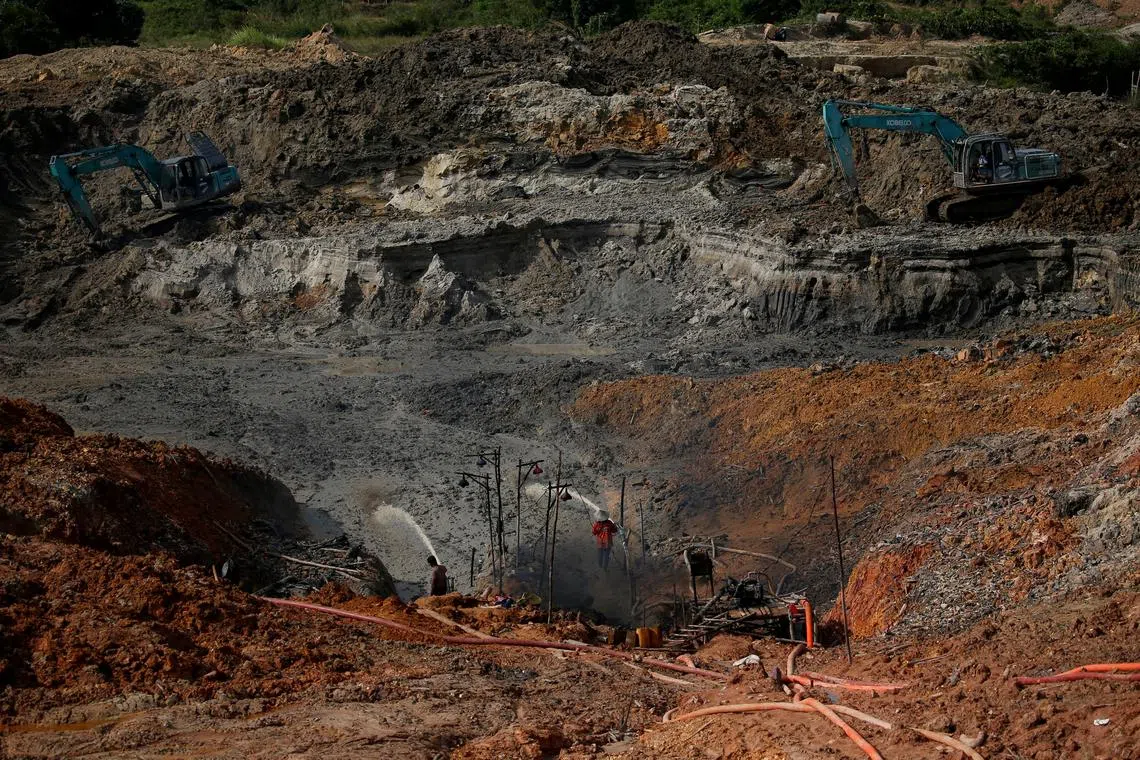Indonesia amends mining law to boost access, support processing
Sign up now: Get insights on Asia's fast-moving developments

The amendment aims to encourage participations of smaller-scale businesses in mining sectors.
PHOTO: REUTERS
JAKARTA – Indonesia’s Parliament on Feb 18 passed a Bill to revise the country’s mining law, aimed at boosting development of domestic mineral processing industries and regulating mining access for small businesses and religious groups.
The amendment seeks to encourage participations of smaller-scale businesses in mining sectors and to ensure ore supply security for mineral processing industries, as resource-rich Indonesia seeks to further develop its domestic metals sector.
Indonesia is a major coal exporter and has rich deposits of tin, copper and bauxite, among other metals. It is the world’s largest source of nickel.
The amended mining law gives companies that aim to build processing facilities priority access to mining concessions, taking into account the size of their investment, the value addition and job creation.
Miners at the so-called “Operation Production” stage will be required to prioritise supplying their products to the domestic market over exports, according to a copy of the Bill reviewed by Reuters.
The rule will be detailed in a separate regulation, the Bill said.
“This amendment is in line with the government’s aspiration to reform governance of mineral and coal mining,” Energy and Mineral Resources Minister Bahlil Lahadalia told Parliament after a plenary vote that passed the Bill.
Holders of mining contracts under Indonesia’s old licensing system will be required to undergo an environmental audit before they are granted an extension and conversion into the new mining permit system.
Religious groups, through a business unit under their control, will also be given priority access to certain mining areas.
In the past, such priority access has only been given to state-owned companies.
Universities were previously included in the parties allowed for priority access, but were later removed.
Instead, priority will be given to certain government-controlled or private businesses to manage a mining area for the benefit of the universities, such as for research and scholarship funds.
Over a thousand university students staged protests in several cities on Feb 17 to reject the proposed university participation in mining, among other demands.
The mining law was revised partly to satisfy a 2021 constitutional court order. The court had ruled that some mining provisions were unconstitutional. REUTERS


